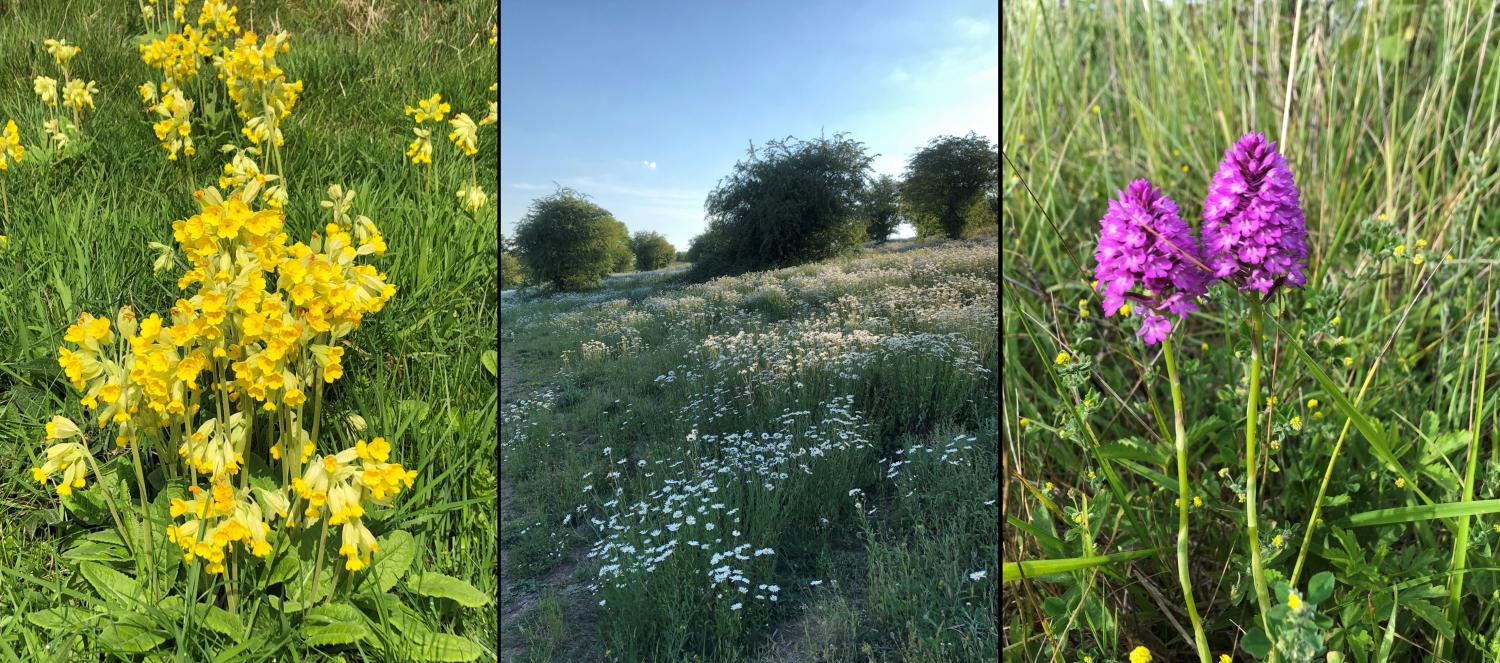Habitat creation engagement: Proposals for Lowland Meadow areas within parks
What are lowland meadows and why are we looking to create more?
Lowland meadows are wildflower-rich grassland areas that are home to a wide range of native grasses, flowering plants and wildlife, including butterflies, bees and other pollinators. As well as their value to nature, lowland meadows can capture carbon and help us address climate change. We have exciting opportunities over the coming years to re-purpose some of the less-used spaces in Bristol’s parks to create and restore areas of meadow.
Sometimes referred to as wildflower meadows or species-rich grassland, lowland meadows have declined by over 97% nationally since 1935. To address the ecological emergency, we are seeking to manage 30% of Bristol City Council land for nature by 2030. As part of that plan we have developed proposals to create and restore areas of meadow that will contribute to the West of England Nature Recovery Network.
We asked for your views on these proposed locations for meadows.

How will these areas of the park be managed?
Once established these meadow areas would be left uncut until late summer to allow them to grow, flower and set seed. When they are cut, the arisings (cut material) will be collected and removed from the site. This helps to lower certain nutrients in the soil to create the conditions in which the wildflowers can compete with the more vigorous grasses, and leads to greater variety of flowers.
Where the meadows are next to paths, a buffer strip will be cut more regularly to prevent the grass from falling onto or over the path. For larger areas where there are visible paths crossing it, these will also be mown more regularly to continue to allow access through these areas. There will be no reduction in litter picking for these meadow areas.

Which parks are we proposing to create more lowland meadow areas in?
We propose to create lowland meadows within parks in four clusters, as shown below.
- North-East cluster:
- Eastville Park (Everest Road, Redhill Drive, Eastville Park South, Wickham View)
- Trendlewood Estate
- Meadowsweet Open Space
- Ridgeway Playing Fields
- East cluster:
- Dundridge Farm Playing Fields
- Newbridge Road Open Space
- Sparke Evans Park
- Arnos Court Park
- South-East cluster:
- Briery Leaze / Whitchurch Green
- Valley Walk Central
- Valley Walk North
- Valley Walk South
- Witch Hazel Road
- South-West cluster:
- Brixham Road Open Space
- Ilchester Crescent Open Space
- Gores Marsh Park
Closed for feedback
Ended: 12 April 2024
What happens next
The feedback from this engagement will be used by Bristol City Council to determine how these proposals will be progressed, which areas should be prioritised, and what other factors might need to be taken into consideration.
Subject to this feedback and other detailed assessments the habitat creation would take place over the next few years when funding is available.
Key dates
- Start date: 15 March 2024
- End date: 12 April 2024
